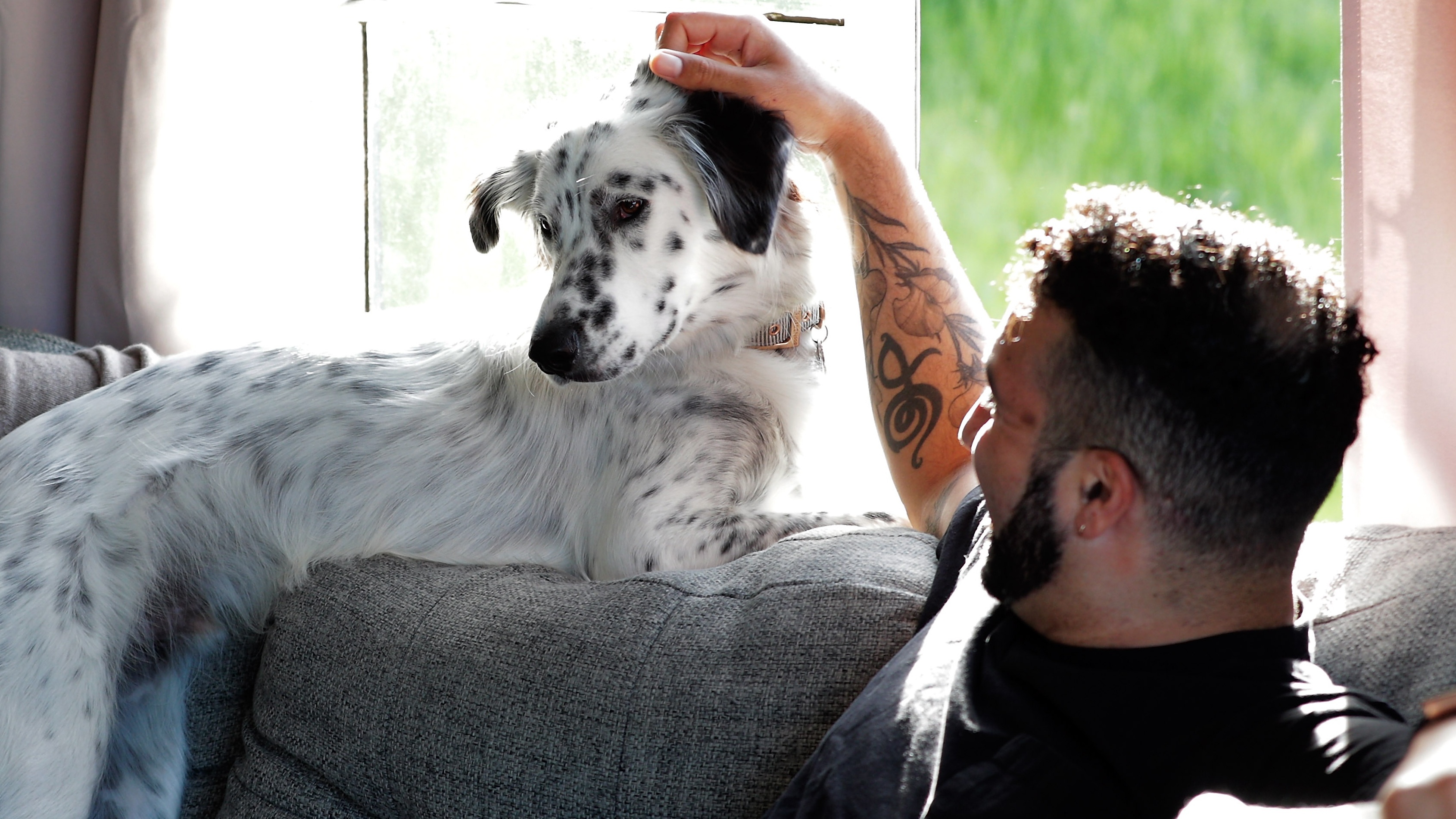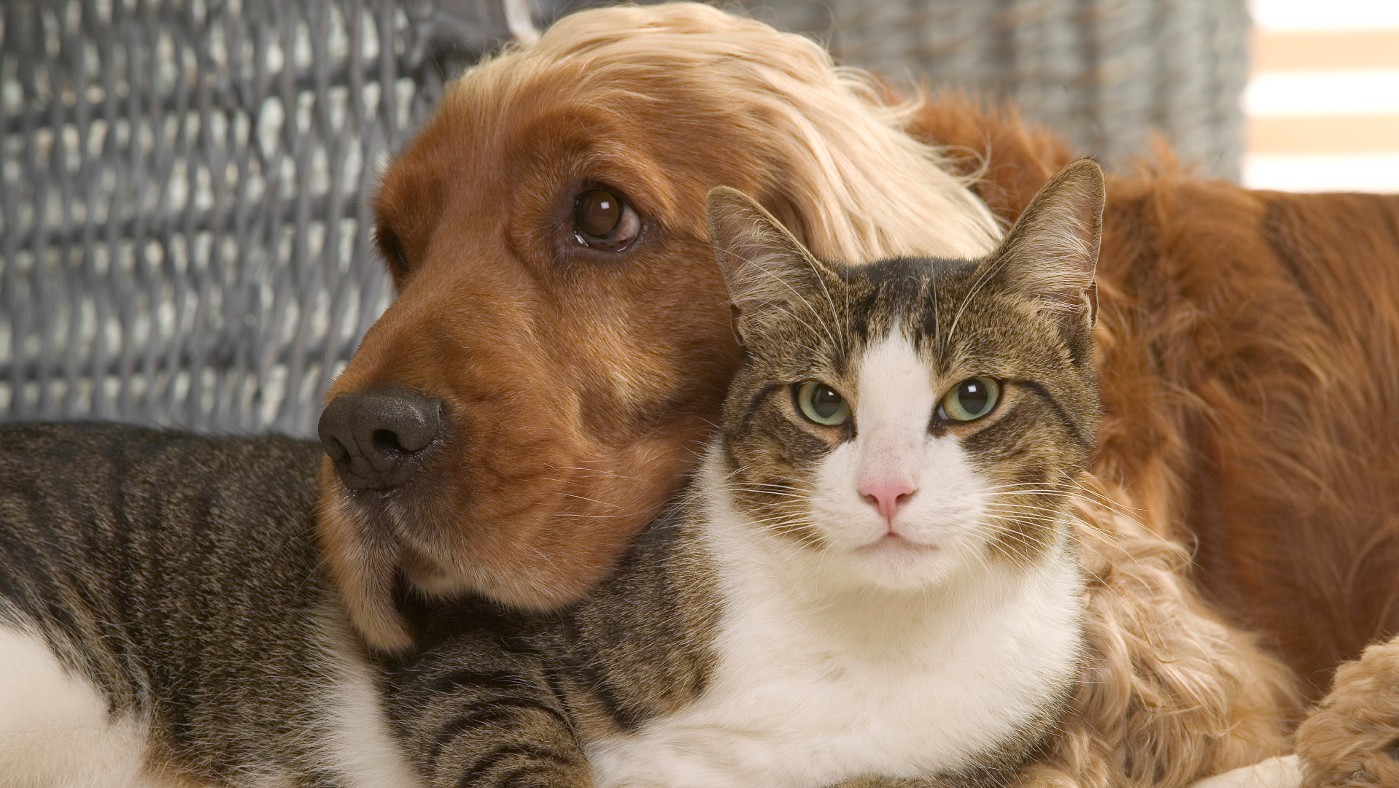Mcr-1: the potentially untreatable superbug being passed from dogs to owners
Experts warn of ‘nightmare scenario’ after discovering that antibiotic-resistant gene can be transmitted to humans by pets

A free daily email with the biggest news stories of the day – and the best features from TheWeek.com
You are now subscribed
Your newsletter sign-up was successful
Dogs are infecting their owners with a superbug that could become resistance to last-resort antibiotic colistin, new research suggests.
The Telegraph reports that scientists are warning of a potential “nightmare scenario” after discovering that the mcr-1 gene can be passed on to humans by “sharing beds with dogs”. The gene “is harboured in the gut and transported via microscopic fecal particles, also making dog baskets an area of increased risk”, says the newspaper.
Reseachers at the University of Lisbon took faecal samples from 126 healthy people from a total of 80 households who between them lived with 102 cats and dogs. Over a period of two years up to February 2020, eight dogs and four people were found to be carrying mcr-1.
The Week
Escape your echo chamber. Get the facts behind the news, plus analysis from multiple perspectives.

Sign up for The Week's Free Newsletters
From our morning news briefing to a weekly Good News Newsletter, get the best of The Week delivered directly to your inbox.
From our morning news briefing to a weekly Good News Newsletter, get the best of The Week delivered directly to your inbox.
And in two households, the mcr-1 gene was found in both the dog and the owner, according to the scientists, who presented their findings at the European Congress of Clinical Microbiology and Infectious Diseases online conference this weekend.
First reported in China in 2015, the gene “confers resistance to colistin, an antibiotic of last resort used to treat infections from some bacteria resistant to all other antibiotics”, says Medical Xpress. “The nightmare scenario that could emerge is mcr-1 combining with already drug-resistant bacteria to create a truly untreatable infection,” the health news site continues.
Experts have been warning for years that the overuse of colistin, especially on meat-farmed animals, “risks the rise of mutant genes” that could make the drug “useless in humans”, The Telegraph reports.
“Colistin is used when all other antibiotics have failed, it is a crucial treatment of last resort,” said Dr Juliana Menezes, who led the research. “If bacteria resistant to all drugs acquire this resistance gene, they would become untreatable, and that’s a scenario we must avoid at all costs.
A free daily email with the biggest news stories of the day – and the best features from TheWeek.com
“We know that the overuse of antibiotics drives resistance and it is vital that they are used responsibly, not just in medicine but also in veterinary medicine and in farming.”
The use of antibiotics in farming is believed to be fuelling a “growing crisis of antimicrobial resistance” that is estimated to kill 700,000 people a year globally - and that “is forecast to kill ten million a year by 2050 if left unchecked”, says The Telegraph.
The World Health Organization has described antibiotic resistance as “one of the biggest threats to global health, food security, and development today”.
In a bid to tackle the growing problem, the EU is banning the “routine preventive” use of antibiotics in farm animals from next year, as the Financial Times reported earlier this year. China has prohibited the use of Colistin in animal feed since 2017, and the US has also introduced regulations aimed at cutting antibiotic use.
-
 Why the Bangladesh election is one to watch
Why the Bangladesh election is one to watchThe Explainer Opposition party has claimed the void left by Sheikh Hasina’s Awami League but Islamist party could yet have a say
-
 The world’s most romantic hotels
The world’s most romantic hotelsThe Week Recommends Treetop hideaways, secluded villas and a woodland cabin – perfect settings for Valentine’s Day
-
 Democrats push for ICE accountability
Democrats push for ICE accountabilityFeature U.S. citizens shot and violently detained by immigration agents testify at Capitol Hill hearing
-
 Experts discover why dogs wag their tails
Experts discover why dogs wag their tailsTall Tales And other stories from the stranger side of life
-
 Investigation into 'oldest ever dog' award
Investigation into 'oldest ever dog' awardTall Tales And other stories from the stranger side of life
-
 'Dirty work' to retrieve cash eaten by a dog
'Dirty work' to retrieve cash eaten by a dogTall Tales And other stories from the stranger side of life
-
 Penile fracture risk higher over Christmas
Penile fracture risk higher over ChristmasTall Tales And other stories from the stranger side of life
-
 Cats have 249 more facial expressions than dogs
Cats have 249 more facial expressions than dogsTall Tales And other stories from the stranger side of life
-
 Row over pole-dancing skeleton
Row over pole-dancing skeletonTall Tales And other stories from the stranger side of life
-
 Kent locals thought it was 'the end of the world'
Kent locals thought it was 'the end of the world'Tall Tales And other stories from the stranger side of life
-
 Spaniels sniff for bedbugs
Spaniels sniff for bedbugsTall Tales And other stories from the stranger side of life